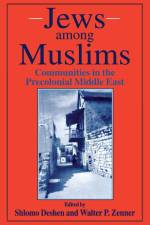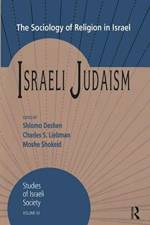av Shlomo Deshen
500
Imagine a traditional Jewish community on the eve of the 19th century, and you will most likely picture the Eastern European shtetl. This prevailing European-oriented view obscures the fact that Jewry is a coat of many colors, with many diverse yet traditional manifestations, including the numerous Jewish communities of North Africa and Southwest Asia. While we know that in recent centuries such countries as Iraq, Tunisia, and Morocco contained a large proportion of the Jewish people, and that communities such as Fez, Aleppo, Tunis, and Baghdad were major centers of Jewish culture, our detailed knowledge of these Jewries remains limited. Jews Among Muslims gathers together some of the most insightful work describing the life and culture of Jews in the traditional Middle East in the nineteenth and twentieth centuries. Spanning the vast belt from Morocco to Afghanistan, which has been dominated by Islam since the seventh and eighth centuries, Jewish communities have long coexisted alongside their Muslim neighbors. Revealing Jewish life in such countries as Yemen, Morocco, Iraq, Iran, Tunisia, Syria, and Kurdistan, Jews Among Muslims tells us much about Jewish religious life and leadership, economic status, connections to the state, social relations with surrouding ethnic groups, internal community organization, and family and gender roles.



